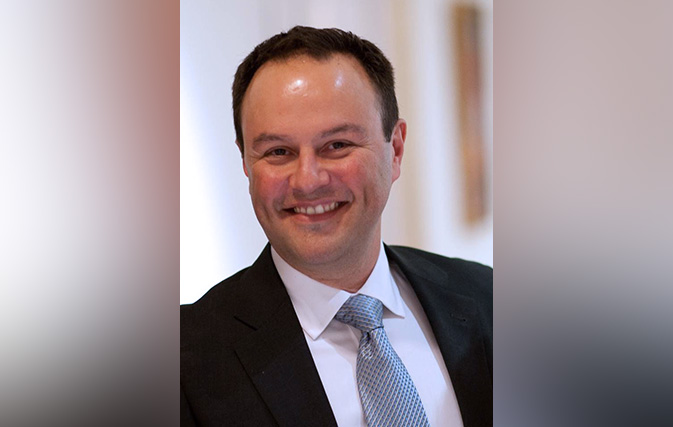TORONTO — Demand for international routes has been “surprisingly strong” given the circumstances, says Air Canada, but if Canada doesn’t reciprocate global entry privileges soon, we could see more countries roll back on their decision to allow Canadians in.
In an exclusive interview with Travelweek, Air Canada’s Virgilio Russi, Managing Director of Sales, International, said that despite a significantly reduced summer schedule (pared down by less than 50%), as well as Canada’s ongoing non-essential travel advisory and mandatory 14-day quarantine for all Canadians and visitors in response to the COVID-19 pandemic, the airline is still seeing very strong demand, particularly for leisure routes like Athens and Rome.
This, added Russi, is partly due to the EU’s recent decision to allow travellers from a select list of countries, including Canada, to enter starting July 1. But with Canada’s borders still closed to essentially all global travellers, the EU could very well do an about-face.
“From a European perspective, they opened up to Canada considering Canada is a safe country, and the expectation is that Canada would consider Europe and treat Europe the same way,” said Russi. “But Canada has one of the most restrictive blanket approaches in the world and unfortunately we’re already seeing a bit of a rollback. Belgium, for example, just announced they’re not going to open up to Canada anymore.”
With the global situation changing almost daily, Air Canada is being forced to adjust routes as needed, adding more capacity when high demand wasn’t initially anticipated, and reducing capacity when regulatory burdens have proven to be too much of a hurdle. This, said Russi, has been the case with Hong Kong.
“We, along with American, United, Air France and others, just suspended Hong Kong, which has been testing everyone who arrives. But a few days ago, they started testing crews as well. This adds a complication because our crews arrive there and they have to wait sometimes 3-4 hours to be tested, which goes into their rest time. If one of them tests positive, this basically grounds our plane because you can’t come back without the crew,” he said.
In response, Air Canada is currently working on a common testing protocol that would allow its flight crews to be tested before departing Canada. Whether Hong Kong will recognize such a test remains to be seen, but Russi maintains it would still be of great service to the airline.
“At least we’ll know that if our crews test negative before they go, the likelihood of them testing positive 15 hours later is very, very small,” he said. “We’re probably going to deploy the test very quickly, hopefully for Hong Kong in the next few days.”
This calls into question whether testing, entry requirements and safety protocols should be standardized around the world. Currently, travel restrictions vastly vary from country to country, and even from province to province within Canada. These inconsistencies, said Russi, adds further complications for airlines.
“There are a lot of regulatory issues, which I think is the biggest challenge we’re facing today. We’re trying to build this regulatory framework that would normally take years to build, and we’re trying to do this in a few weeks with so many countries,” he said. “We need to develop protocols that everyone accepts right now because every country is doing their own thing. I applaud Europe for being able to get one European Union protocol for everyone – they’re leading by example and they’ve done a great job.”
Russi was quick to add that this doesn’t mean Canada should open its borders to everyone, but rather a more selective process is needed.
“Do we really need to quarantine everyone who comes to Canada, even if they’re coming from a country with zero cases?” he asked. “The 14-day quarantine really kills business traffic and limits leisure traffic to a great extent.”
With Canadians facing the daunting prospect of a two-week quarantine upon their return home, they’re also now being required to test for COVID-19 prior to their departure to an increasing number of destinations, particularly in the Caribbean. Saint Lucia, Antigua, Curaçao and Belize have all recently announced mandatory pre-travel testing, with only those testing negative within a certain number of days prior to travel being allowed to enter.
“This has been the trend in the Caribbean overall, but as you know testing isn’t readily available in Canada, in every province. You can’t just go to the pharmacy and get tested,” said Russi. “That’s an added burden for travellers. I don’t think it’s necessarily a bad thing; pre-testing is much better than quarantines and not letting people coming in at all. But we need to find ways for people to gain access to testing more easily in Canada so that they can board a plane on short notice.”
Due to all these challenges, there are certainly many Canadians who are forgoing travel well into 2021 and beyond. But with several Sun destinations seeing good load factors in recent weeks, particularly the Bahamas and Mexico, Canadians are also proving to be a resilient lot.
“What we’re seeing is people want to travel, we all do after five months at home, and I think they want the beach and open spaces rather than big-city experiences for now,” said Russi. “Even with all that’s happening we’re still seeing very strong demand, people are still travelling, which is a very good thing.”

